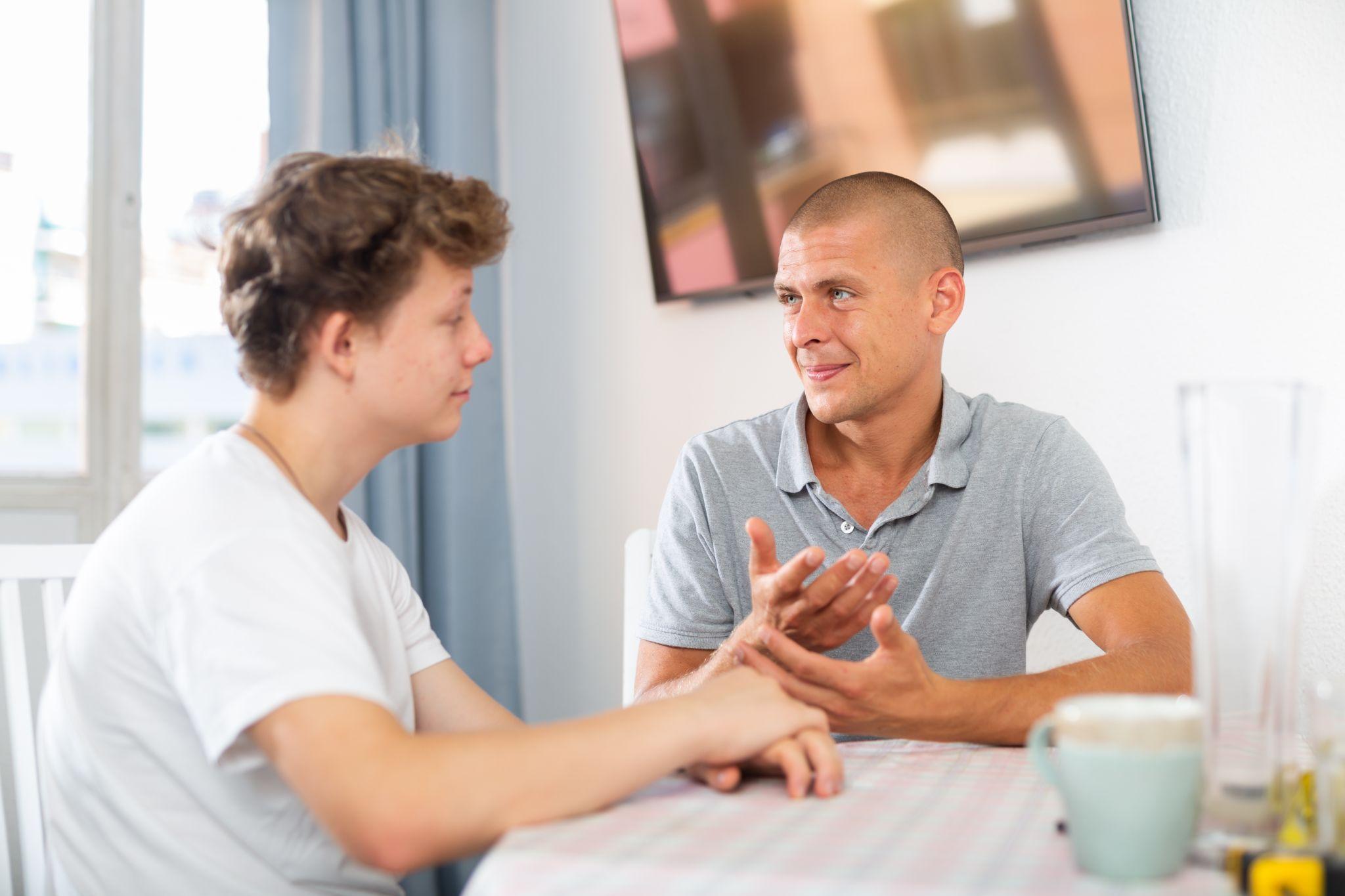Talking to children about going to rehab is a sensitive and challenging task. It’s natural for parents to feel unsure about how to start or what to say, especially when the topic involves parental substance abuse.
However, children are often more aware of what’s happening around them than adults realize. When parents take the time to communicate openly, they help their children feel secure and supported during a difficult time.
Addressing this topic directly also reduces confusion and fear. Instead of leaving children to imagine the worst, explaining addiction to kids in a straightforward and age-appropriate way can help them understand that rehab is a positive step toward healing for the parent and the entire family.
The Impact of Parental Rehab on Children
When a parent decides to seek help for parental substance abuse, it affects the entire family, including children. Depending on their age and maturity level, kids might experience a range of emotions, such as sadness, fear, confusion, or even anger.
Younger children may worry about who will take care of them, while older children may feel embarrassed or even blame themselves for their parent’s struggles. Without proper communication, children might internalize these emotions, leading to long-term effects on their mental health.
On the other hand, when parents address the situation proactively, children are more likely to cope positively. Explaining that going to rehab is a way for the parent to become healthier can help children understand it as an act of love and responsibility.
Additionally, discussing the rehab process can help normalize seeking help for problems, teaching children valuable lessons about resilience and the importance of taking care of one’s health.
Preparing for the Conversation
The first step in explaining addiction to kids is finding the right time and place for the conversation. Choose a calm moment when your child isn’t distracted by other activities or emotions. A private and familiar setting, such as your living room or kitchen table, can help create a safe environment for an open discussion.
Avoid rushing the conversation. Make sure you have enough time to address your child’s questions and feelings without interruptions.
Before the conversation, consider gathering resources to help guide the discussion. Books about addiction and recovery for children, support groups, or advice from a family counselor can provide helpful language and tools.
Age-Appropriate Communication Strategies
Children of different ages process information differently, so tailoring your approach based on their developmental stage is crucial.
Toddlers and Preschoolers
For very young children, simple language and reassurances work best. They may not understand what addiction or rehab is, but they will notice their parent’s absence.
You can explain it in simple terms: “Mommy/Daddy is going to a special place to get healthy and feel better.” Reassure them that they are loved, cared for, and that someone they trust will be there for them while you’re away.
School-Aged Children
Children in this age group are more curious and may ask questions about why their parent needs to go away. Use age-appropriate explanations to introduce the concept of parental substance abuse.
For example, you might say, “Sometimes grown-ups develop habits that aren’t good for them, and they need help to stop. Rehab is a place where people learn how to make healthier choices.”
Emphasize that the decision to go to rehab is a way to help the family, and assure them that their routines, like school and activities, will remain consistent.
Teenagers
Teenagers are more likely to be aware of the situation and may have stronger opinions or emotions about it. Be prepared for direct questions and possibly even anger. It’s important to be honest and transparent while addressing their concerns. Explain how going to rehab is part of taking responsibility and that it’s a step toward improving the family dynamic.
You might say, “I’ve realized that my behavior has affected our family, and I want to do everything I can to make it better. Rehab will help me learn how to be healthier for all of us.”

3 Key Points to Cover During the Discussion
When explaining addiction to kids and discussing your rehab stay, there are a few critical topics to address:
1. What Rehab Is and Its Purpose
Explain that rehab is a place where people go to get help for problems they can’t solve alone. Use positive language, such as: “Rehab is a place that helps people learn how to live healthier lives and make better choices.”
2. Reassurance About Care and Routine
Children often worry about how your absence will affect their day-to-day lives. Reassure them that their caregivers will ensure their needs are met and that their routines, like meals, school, and bedtime, will remain the same. You can say, “While I’m away, Grandma/Uncle/Aunt will take care of you and make sure everything stays the same.”
3. Encourage Questions
Let your child know that it’s okay to ask questions or share how they feel. For example, you might say, “If you ever feel sad or have questions, you can talk to me or Grandma. We all want to help you.”
Maintaining Connection During Rehab
Staying connected while you’re in rehab is essential for maintaining your bond with your child. Depending on the rehab facility’s policies, you can stay in touch through phone calls, letters, or visits.
Discuss these options with your child and set clear expectations for how often you’ll communicate. For example, you might say, “I’ll call every Saturday so we can talk about your week.”
Creating a predictable schedule for communication can help your child feel more secure and involved during your time in rehab.
Supporting the Child’s Emotional Well-Being
Children may still struggle with the emotional impact of parental substance abuse and your absence during rehab. Watch for signs of distress, such as changes in their behavior, mood, or academic performance. If you notice anything concerning, consider enlisting the help of a counselor or therapist who specializes in working with children.
Support groups for children of parents in rehab can also be beneficial. These groups provide a safe space for kids to share their feelings and meet others who are going through similar experiences.
Preparing for Reintegration Post-Rehab
When you return from rehab, your family will likely need to adjust to new routines and dynamics. Talk to your child about what to expect and emphasize that recovery is an ongoing process. For example, you might explain, “I’ve learned a lot about how to make better choices, and we’ll keep working as a family to support each other.”
Encourage open communication and let your child know they can come to you with any concerns or questions as the family adjusts. This transparency helps rebuild trust and strengthens your bond.
Support Your Family Through Rehab With Lumina Recovery
Discussing a rehab stay with your child is a challenging but essential step in fostering trust and emotional stability. By using age-appropriate communication strategies and maintaining open dialogue, you can reassure your child and help them feel secure during this transition.
At Lumina Recovery, we offer family therapy to support loved ones in understanding and navigating addiction together, and residential inpatient programs to provide holistic care during your recovery journey.
If you’re ready to take the next step toward recovery while supporting your family, contact Lumina Recovery today.


